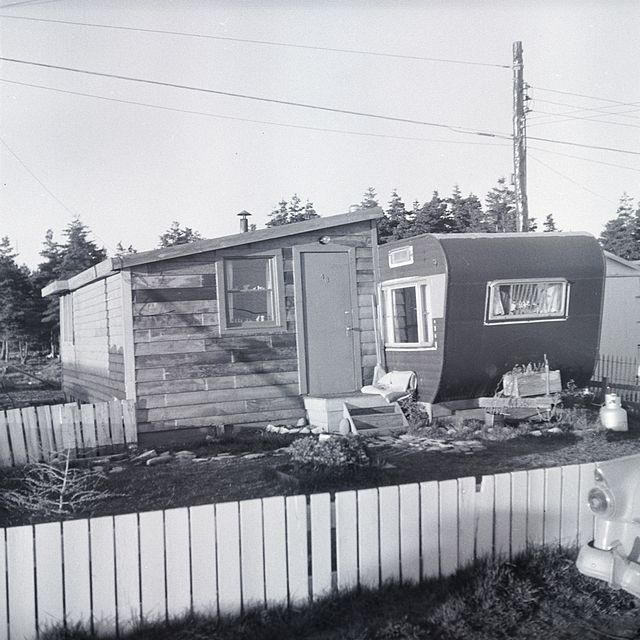
Culture War or Class War: What's Behind Liberals' Contempt for Poor 'White Trash?'
Keaton Weiss | October 14, 2020
In his recent essay titled “Why Liberals Hate Poor White Trash,” River Page writes the following:
“The term ’liberal,’ in the popular imagination, has become synonymous with upper-middle-class white urbanites, a stereotype borne out by statistics. They are a well-educated cohort—widely-read enough to understand the problems with society and capitalism but too insecure in their position to do anything that might challenge the system that has brought them relative benefit—and therefore enjoy programs which give the surface-level appearance of progress and equality. . .Liberals support gay marriage or the right for trans people to use a particular bathroom in public precisely because it does not cost them anything. They can support open borders because it makes their juice cleanse cheaper, and comes with the added benefit of being baptized in the sweat of a Mexican immigrant to cleanse them of their original sin of whiteness. Through charity and means-testing, they can help the poor think they are moral enough to deserve it. They hate the white trash because of the insecurity of their class position. At any time they can look into the eyes of some poor honkey in the trailer park and see themselves looking back. It frightens them, and that fear turns to anger. But they can still pity the poor black person because they know they will never be one.”
The article laments the liberal class’ lack of empathy for poor whites, and suggests that what’s behind their contempt is as much a matter of class as it is culture. Liberals often express their frustration with these “white trash” for voting against a more tolerant and inclusive future, often branding them as bigots who deserve to toil in the kind of America they usher in by voting in large numbers for austerity and deregulation. Even when liberals attempt anything resembling a class analysis of these voters, it’s often laced with similar scorn and disdain.
For example, the article sites Frank Rich’s piece in New York Magazine entitled “No Sympathy for the Hillbilly,” in which Rich writes, in reference to those poor white conservatives in Louisiana’s infamous ‘cancer alley,’ “They’ll keep voting against their own interests until the industrial poisons left unregulated by their favored politicians finish them off altogether. Either way, thebest course for Democratsmay be to respect their right to choose.”
Again, their plight is of their own making, and they deserve the misery they’ve wrought upon themselves because they refuse to vote Blue.
Setting aside that the Democratic Party is void of serious policy proposals to alleviate poverty and reverse environmental destruction, there’s a more fundamental explanation of liberals’ contempt for poor whites, and that is their belief in meritocracy. Liberals ultimately believe in market capitalism, and believe that government’s role in the economy is to simply “level the playing field” so that everyone is competing under fair and equal circumstances. Of course, this means that race and gender discrimination in the workplace must be confronted, certain abuses of corporate power must be punished, and access to education must be broadened, but these are all seen as corrective measures to ensure that the capitalist system can function more or less as it’s supposed to, with winners and losers whose claims to a dignified life are based upon the marketability of their skills and knowledge. Joe Biden himself often articulates this very sentiment, tweeting out statements like “Americans should be given the opportunity to go as far as their dreams and God-given ability will take them.”
But what is to become of those without big dreams and/or low “God-given ability?” According to Joe Biden and his liberal supporters, who cares? It’s not their problem. As long as everyone is “given the opportunity” to compete economically, whether they sink or swim is ultimately up to them, and the society as a whole can take satisfaction in having at least adequately refereed this ongoing brutal and unforgiving death match called the “market economy.”
Under liberals’ assumptions about the nature of societal injustices and their prescriptions for how to correct them, they can empathize with poor black and brown people, because they ascribe their class status to the very real problems of systemic racism. Poor whites, on the other hand, have no such excuse, and thus, are often deemed “trash.”
River Page, contributing editor at Twink Revolution where his article was published, joined our podcast to discuss his article, and the various issues it raises about class, culture, the Democratic Party, and the liberal ideal. Listen to our full conversation by clicking the player below:
Subscribe to the Due Dissidence podcast on Apple,Stitcher,Spotify,Castbox, Google Podcasts, or any major podcast player!